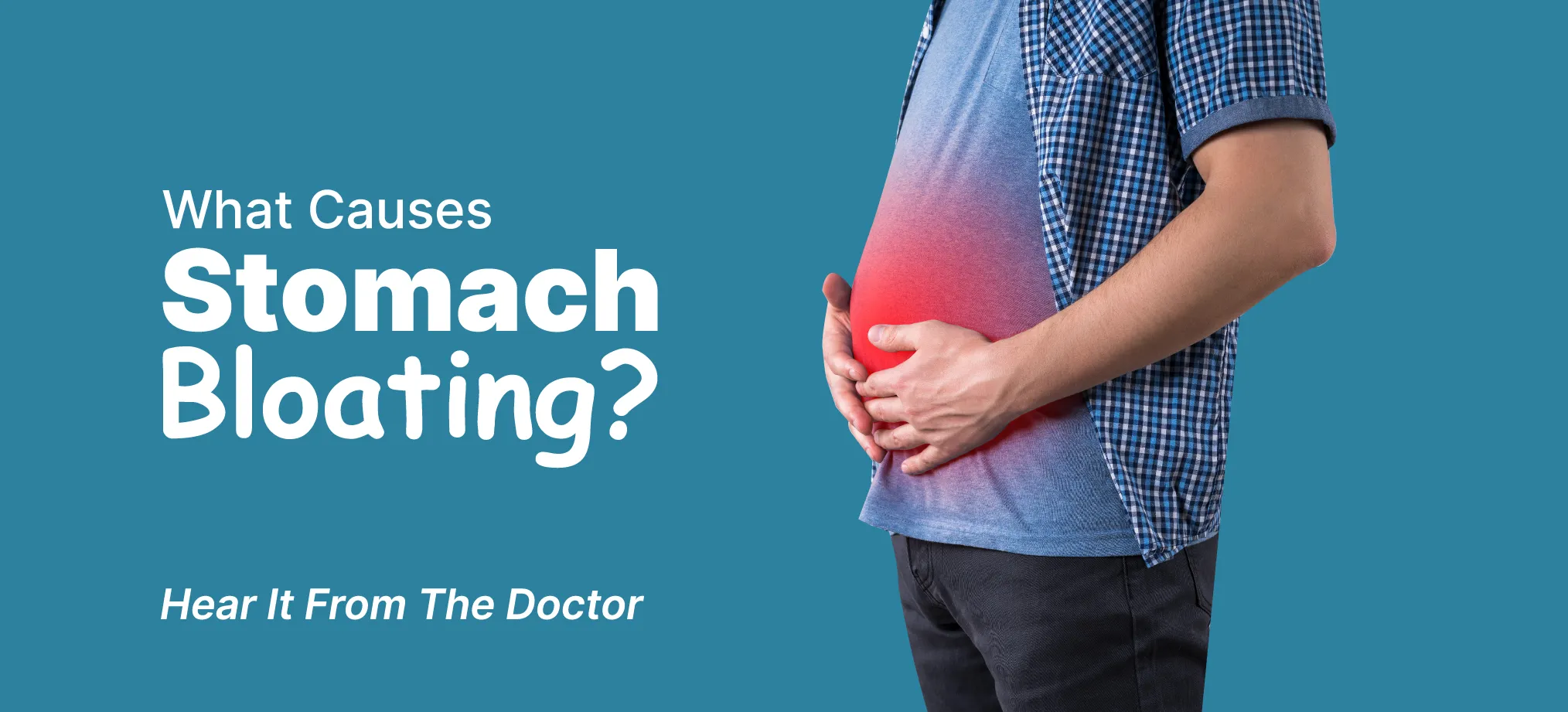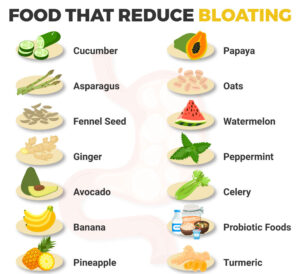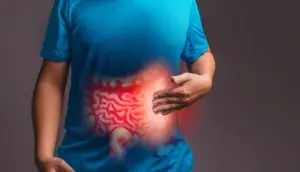
Causes of Bloating
Bloating is usually a result of gas buildup, digestive imbalances, or underlying medical conditions. While it’s common and often harmless, chronic bloating can sometimes point to deeper health issues.
1. Overeating & Eating Too Fast
Eating large meals or eating too quickly causes excess air swallowing and delays stomach emptying.
Chewing food poorly also makes digestion harder, leading to gas and bloating.
2. Gas and Air Swallowing
Drinking carbonated beverages, chewing gum, or talking while eating can cause excess air intake.
This air gets trapped in the digestive system, making the belly feel tight and swollen.
3. Constipation
When stool moves too slowly through the intestines, gas gets trapped behind it.
This leads to fullness, cramping, and abdominal distension.
4. Food Intolerances & Sensitivities
Lactose intolerance: difficulty digesting milk and dairy.
Gluten sensitivity: wheat, barley, rye.
FODMAPs (fermentable carbs in beans, onions, garlic, etc.) often trigger bloating.
5. Irritable Bowel Syndrome (IBS)
IBS is one of the most common causes of chronic bloating.
It affects gut movement and sensitivity, leading to alternating constipation, diarrhea, and discomfort.
6. Hormonal Changes
Many women experience bloating before and during menstruation due to hormonal fluctuations.
Hormones can also affect water retention and gut motility.
7. Poor Diet & Processed Foods
High-fat, salty, or sugary foods slow digestion.
Processed foods often contain preservatives, artificial sweeteners (like sorbitol or xylitol), and additives that ferment in the gut, creating gas.
8. Gut Imbalance (Microbiome Issues)
A lack of good bacteria in the gut can cause improper digestion and excessive fermentation.
Antibiotics, stress, or poor diet often disturb gut balance, leading to bloating.
9. Medical Conditions
Persistent bloating may be linked to:
Celiac disease (immune reaction to gluten)
Gastroparesis (slow stomach emptying)
Small intestinal bacterial overgrowth (SIBO)
Ascites (fluid buildup, often linked with liver or heart disease)
Ovarian cancer or gastrointestinal tumors (rare but serious cause – requires medical attention)
10. Lifestyle Factors
Stress and anxiety affect digestion through the gut-brain connection.
Lack of physical activity slows down intestinal movement.
Smoking can increase air swallowing and acid reflux, worsening bloating.
Bloating Remedies
Quick Home Remedies
Peppermint Tea – relaxes the digestive tract and eases gas.
Ginger & Fennel Seeds – soothe indigestion and reduce stomach pressure.
Warm Lemon Water – supports digestion and helps reduce water retention.
Light Movement & Yoga – walking or gentle stretches release trapped gas.
Over-the-Counter Treatments
Gas Relief Tablets (Simethicone) – break down gas bubbles.
Antacids – useful for bloating with heartburn.
Probiotics – restore gut balance for long-term digestive health.
Activated Charcoal – absorbs excess gas when needed.
Lifestyle & Diet Adjustments
Eat smaller, frequent meals instead of heavy portions.
Avoid carbonated drinks and processed foods.
Stay hydrated and reduce high-salt foods.
Try a low-FODMAP diet if you suffer from IBS.
10 Best Foods to Reduce Bloating Naturally
Bloating can often be managed by making smart dietary choices, and some foods are especially effective at easing digestive discomfort. Ginger and peppermint stand out as natural soothers, helping the stomach relax and food move more smoothly through the gut. Fresh cucumber and bananas are excellent for reducing water retention, with their high water and potassium content helping the body flush out excess sodium that contributes to swelling. Fennel seeds have been used traditionally for centuries to relieve gas and cramping, while probiotic-rich yogurt works from within by balancing the gut microbiome, preventing fermentation and gas buildup. Tropical fruits like papaya and pineapple supply enzymes such as papain and bromelain that improve protein digestion, reducing heaviness after meals. Asparagus helps the body release excess water and supports healthy bacteria in the intestines through its prebiotic content, while fiber-rich oats keep digestion regular, preventing constipation that often leads to bloating. By incorporating these foods into daily meals, you can naturally support smoother digestion, prevent gas accumulation, and maintain a lighter, healthier stomach.




